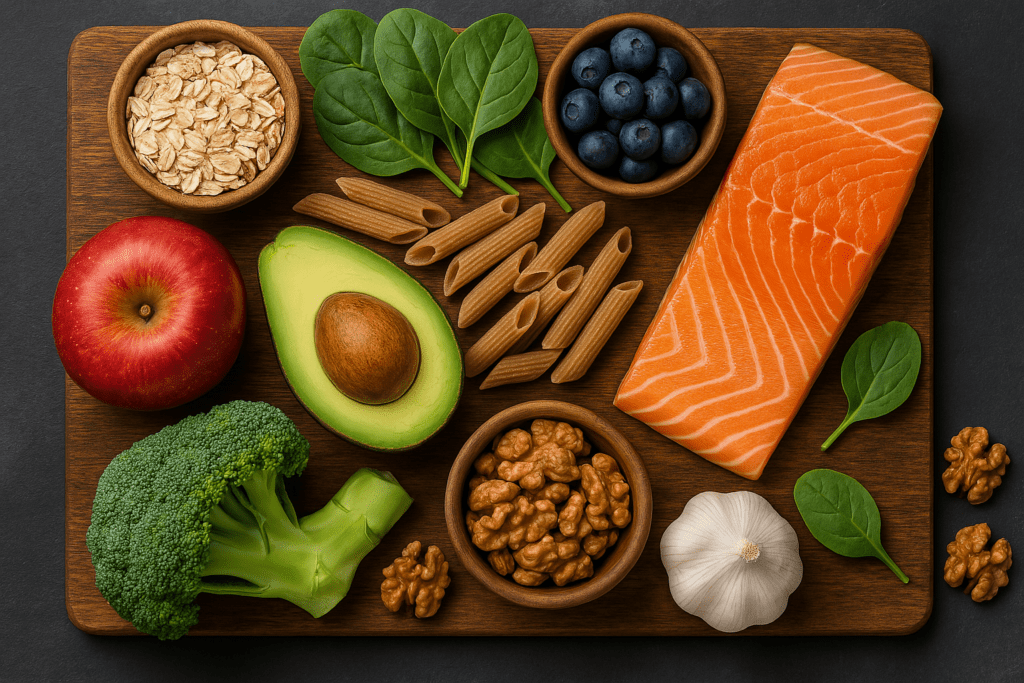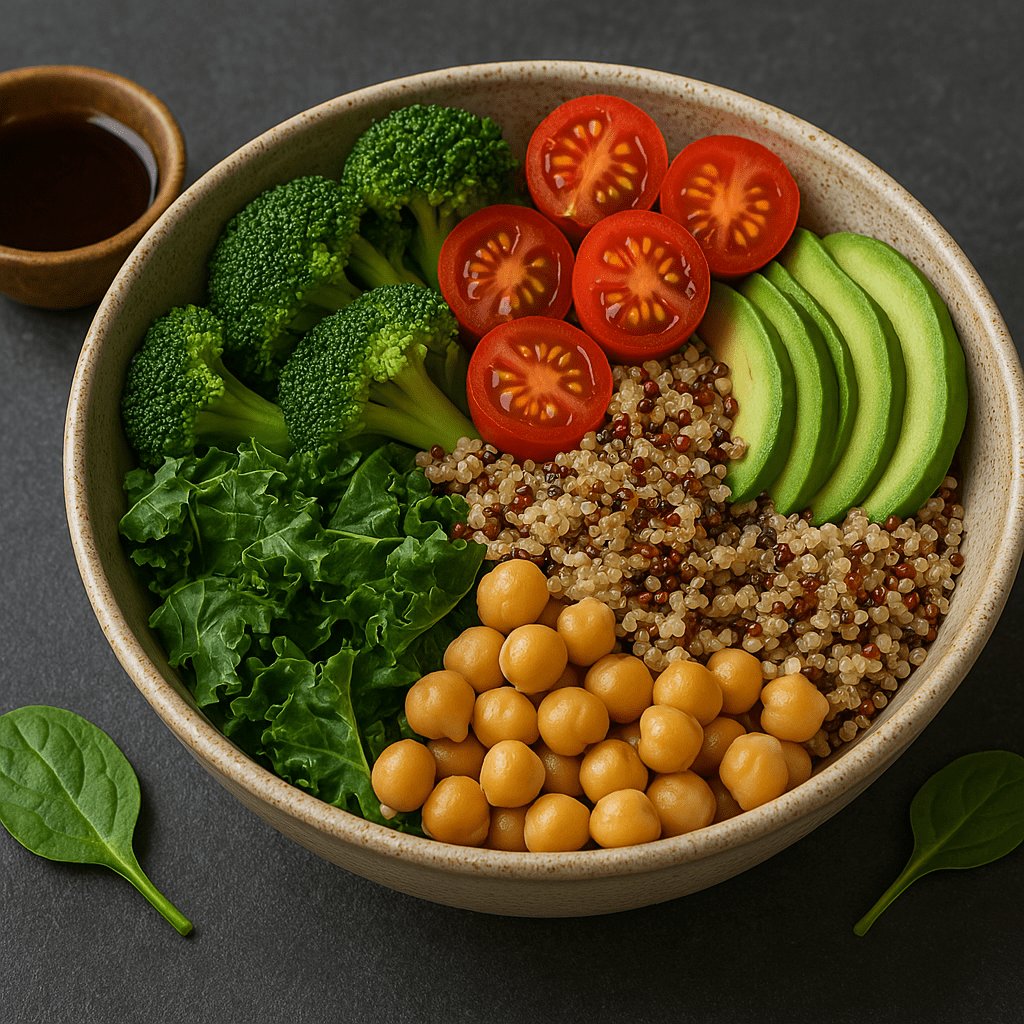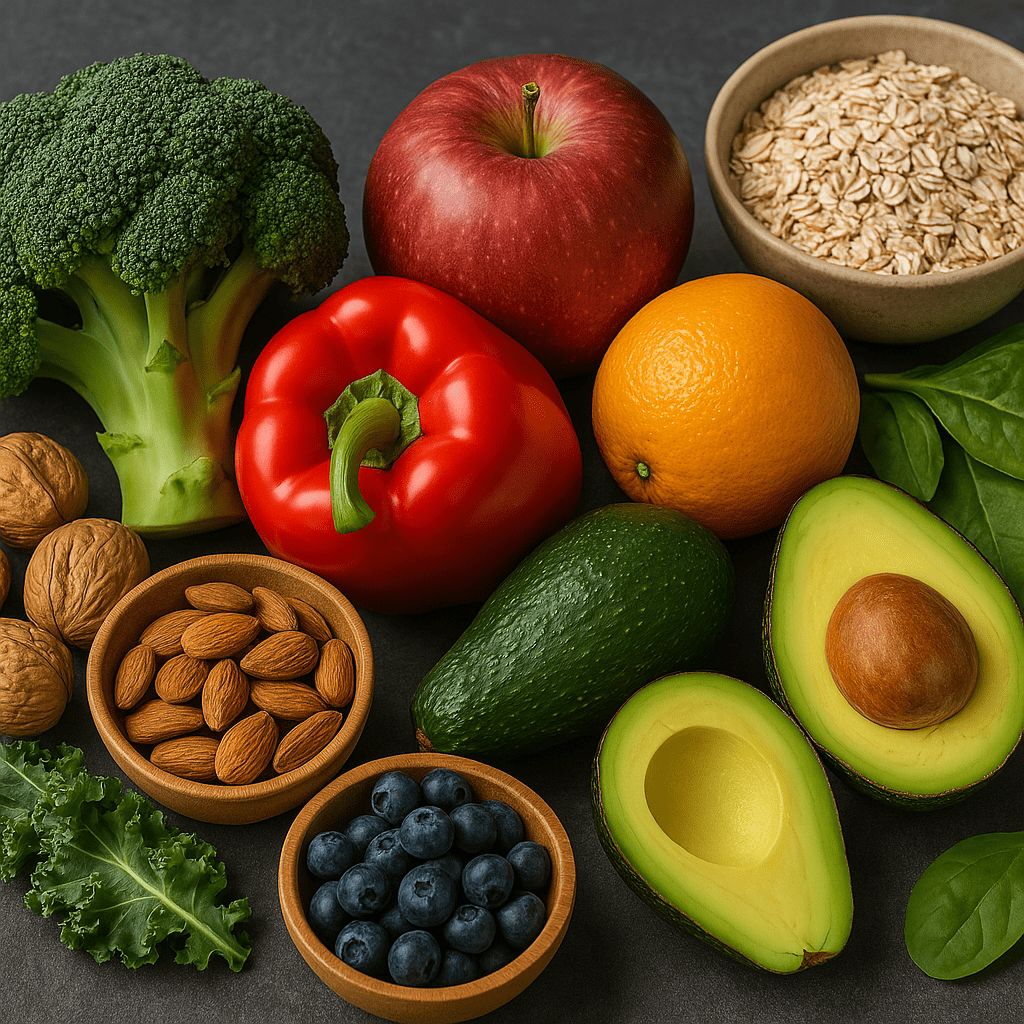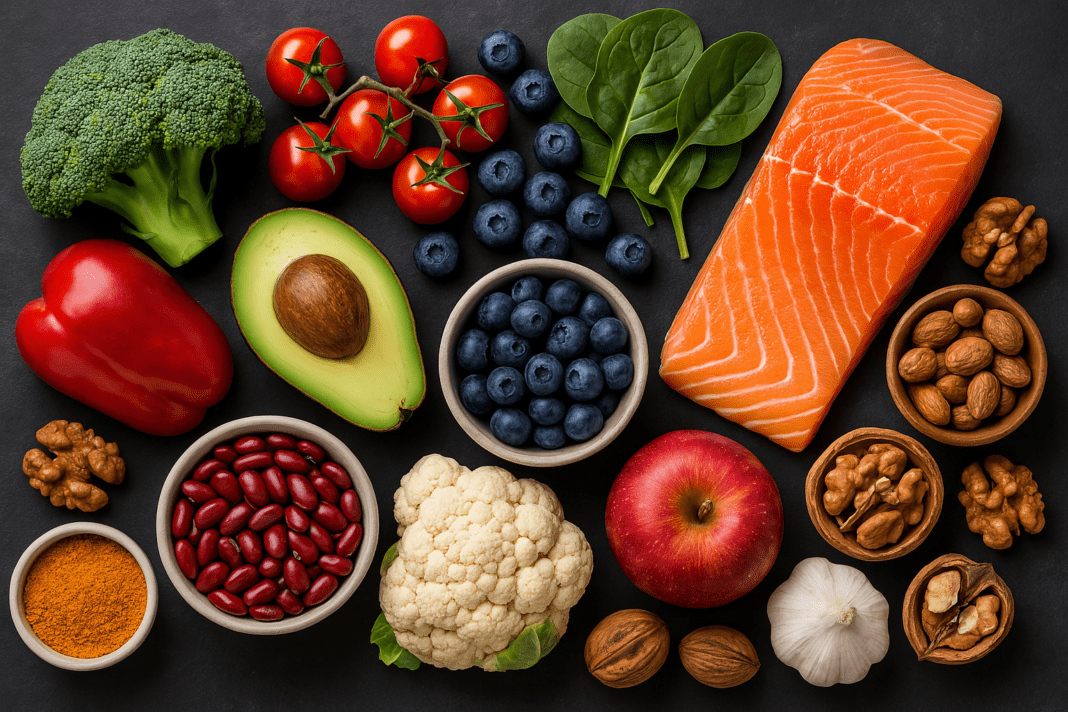What to Eat to Prevent Dementia: A Science-Backed Guide to the Best Foods for Brain Health
Dementia, a term used to describe a group of cognitive disorders that affect memory, reasoning, and communication, poses one of the most pressing public health challenges of our time. While genetics and aging are primary risk factors, research increasingly supports the powerful role that diet plays in maintaining cognitive health and even reducing the risk of dementia. By making informed, science-based dietary choices, individuals can take proactive steps to protect their brain and promote lifelong mental acuity. This article provides an in-depth look at what to eat to prevent dementia, highlighting the best foods for brain health and examining how dietary patterns can serve as a key strategy in the fight against cognitive decline.
You may also like: How a Plant-Based Diet May Help Reduce Cancer Risk: What Science Says About Nutrition and Tumor Prevention
Understanding the Link Between Diet and Dementia
Scientific evidence continues to support the critical connection between diet and the development or prevention of neurodegenerative diseases such as Alzheimer’s and vascular dementia. This relationship hinges largely on inflammation, oxidative stress, vascular health, and the buildup of beta-amyloid plaques in the brain. Diets high in saturated fats, refined sugars, and ultra-processed foods are associated with increased brain inflammation and reduced cognitive function. Conversely, a dementia prevention diet rich in plant-based whole foods, healthy fats, and antioxidants has been linked to better memory, focus, and a lower risk of age-related mental decline.
Incorporating foods to prevent dementia into daily meals not only supports brain structure and function but also modulates key biological pathways associated with neurodegeneration. Emerging research highlights that some foods may help stave off dementia by directly influencing neuroplasticity, the brain’s ability to adapt and form new connections. Understanding these mechanisms reinforces the importance of a food-first approach to brain health.

Plant-Based Diets and Cognitive Longevity
The Mediterranean and MIND (Mediterranean-DASH Intervention for Neurodegenerative Delay) diets are two of the most extensively studied dietary patterns linked to dementia prevention. Both emphasize plant-based foods, whole grains, legumes, nuts, seeds, and moderate amounts of healthy fats from sources like olive oil and avocados. These diets are associated with a reduced risk of cognitive impairment and are considered foundational models for a dementia prevention diet.
Focusing on whole-food plant-based nutrition aligns with the principles of reducing saturated fat and cholesterol while increasing fiber, phytonutrients, and antioxidants—all of which are essential for reducing systemic inflammation and protecting against vascular damage, a key contributor to cognitive decline. For those looking for foods that fight dementia, prioritizing fruits and vegetables, particularly those rich in polyphenols and flavonoids, can be highly beneficial.

Top Brain-Protective Foods Backed by Science
Among the best foods to prevent dementia, leafy greens such as spinach, kale, and collard greens stand out for their high folate, vitamin K, and lutein content. These nutrients are associated with slower cognitive aging and improved memory. Berries, particularly blueberries and strawberries, are another powerhouse due to their potent antioxidant compounds that combat oxidative stress and inflammation—two key drivers of neurodegeneration.
Nuts and seeds, particularly walnuts, chia seeds, and flaxseeds, offer a plant-based source of omega-3 fatty acids, which are essential for brain cell membrane integrity. Omega-3s have been shown to reduce the buildup of harmful plaques and support communication between neurons. Whole grains such as oats, quinoa, and brown rice provide sustained glucose release, ensuring a steady energy supply to the brain without the blood sugar spikes associated with refined carbohydrates.
Fatty fish like salmon, sardines, and mackerel are well-known for their brain-boosting omega-3 content, though plant-based sources remain effective alternatives. Legumes such as lentils and black beans provide plant-based protein and fiber, supporting gut health and reducing systemic inflammation. These are essential foods to reduce dementia risk, particularly in populations with a predisposition to cardiovascular disease.

Foods That May Help Stave Off Dementia Through Plaque Reduction
A key hallmark of Alzheimer’s disease is the accumulation of amyloid-beta plaques in the brain. Some studies suggest that certain foods may help remove plaque from the brain or at least reduce its formation. Turmeric, a spice containing the active compound curcumin, has shown promise in breaking down amyloid deposits and reducing oxidative stress in the brain. While more research is needed to establish causality, curcumin’s anti-inflammatory and antioxidant effects make turmeric a valuable addition to any dementia prevention diet.
Cruciferous vegetables like broccoli, Brussels sprouts, and cabbage contain glucosinolates, which support detoxification pathways and may help in clearing harmful proteins from the brain. Green tea, rich in catechins and other polyphenols, is another food that has been linked to reduced cognitive decline. These foods, when incorporated consistently into meals, serve as natural agents in the body’s fight against cognitive aging and may represent foods that remove plaque from the brain.
Dementia Foods to Avoid: What to Limit for Long-Term Brain Health
Just as certain foods promote brain health, others have been linked to increased risk. Highly processed foods, sugary snacks, and refined grains contribute to blood sugar dysregulation and chronic inflammation, which are major contributors to neurodegeneration. Foods high in trans fats, often found in fried and packaged goods, can negatively affect brain structure and function. Studies have identified these as foods to avoid to prevent dementia, given their impact on both vascular and cognitive health.
Additionally, diets high in sodium and low in potassium can elevate blood pressure, a known risk factor for vascular dementia. Alcohol, when consumed excessively, can damage brain cells and interfere with neurotransmitter function. While moderate red wine consumption has been linked to certain cognitive benefits due to resveratrol, these effects are not universally protective and should be considered with caution. Limiting or eliminating these dementia foods to avoid is a proactive measure in any diet for dementia patients.
Dietary Patterns That Reduce Dementia Risk
A growing body of research suggests that it is not just individual foods, but the overall pattern of eating that determines long-term brain health. Diets rich in plant-based, minimally processed foods, low in animal products and free of added sugars, are increasingly recognized as ideal for brain protection. These patterns, including the MIND diet and variations of the Mediterranean diet, consistently emerge in the literature as effective approaches for cognitive preservation.
A vascular dementia diet should prioritize foods that improve circulation, reduce blood pressure, and support endothelial function. These include leafy greens, beets, citrus fruits, and foods rich in magnesium and potassium. The synergistic effect of eating whole, nutrient-dense foods over time can significantly lower the risk of cognitive decline. This dietary consistency provides a robust foundation for mental clarity, emotional balance, and long-term cognitive resilience.
What Is the Number One Food That Fights Dementia?
While it is difficult to name a single food that can prevent dementia entirely, many experts agree that leafy green vegetables may hold the top spot in the category of foods to stop dementia. A study published in Neurology found that individuals who consumed one or more servings of leafy greens per day had a significantly slower rate of cognitive decline than those who rarely ate them. The nutrients in greens, including folate, vitamin E, and lutein, work together to combat oxidative stress and promote brain health.
Berries and fatty fish are also strong contenders in the fight against dementia. Their combined effects on inflammation, circulation, and neural communication make them some of the best foods for dementia patients to eat regularly. The inclusion of these nutrient-rich options in a dementia and eating habits strategy can go a long way in preserving cognitive function across the lifespan.
Can Cutting Out Sugar Reverse Dementia?
The relationship between sugar and brain health is a complex one. High intake of added sugars has been linked to increased risk of dementia, particularly Alzheimer’s disease, due to its effects on insulin resistance, inflammation, and oxidative damage. While cutting out sugar may not reverse established dementia, it can certainly play a critical role in slowing progression and improving quality of life for individuals with mild cognitive impairment.
Reducing sugar intake helps stabilize blood glucose levels, which in turn supports optimal brain function. For this reason, many experts recommend limiting added sugars as part of a comprehensive diet for dementia sufferers. Substituting whole fruits for processed desserts and choosing foods with low glycemic indices are practical steps toward achieving this goal. These changes can yield profound benefits for both brain and metabolic health.
The Role of the Gut-Brain Axis in Dementia Prevention
Emerging research highlights the profound connection between gut health and cognitive function, often referred to as the gut-brain axis. The diversity and composition of gut microbiota influence inflammation, immune regulation, and even the production of neurotransmitters such as serotonin. Diets rich in fiber, prebiotics, and probiotics support a healthy microbiome, which in turn supports brain health.
Fermented foods like kimchi, sauerkraut, and unsweetened yogurt (or plant-based alternatives with live cultures) offer a source of natural probiotics. Fiber-rich foods, including beans, lentils, and whole grains, serve as fuel for beneficial gut bacteria. This symbiotic relationship between diet and the microbiome illustrates how choosing foods good for dementia can also support gut health, providing a two-pronged approach to disease prevention.
Dementia and Food: Lifestyle Strategies Beyond Diet Alone
While nutrition plays a central role in cognitive longevity, it is most effective when integrated with other lifestyle factors. Regular physical activity, sufficient sleep, stress reduction, and meaningful social engagement have all been linked to a reduced risk of dementia. However, food remains the most consistent and modifiable factor under our direct control.
Adopting a whole-food, plant-based diet supports overall health and enhances the benefits of these complementary lifestyle practices. When people adopt dementia and eating habits that align with their cultural preferences, values, and routines, adherence improves, and long-term success becomes more achievable. This holistic approach helps create sustainable patterns that not only protect the brain but improve life satisfaction and daily vitality.
Creating a Personalized Diet for Dementia Patients
Individualizing a diet for dementia patients involves more than just choosing the right foods; it requires consideration of personal preferences, chewing and swallowing abilities, and potential medication interactions. Texture-modified diets, colorful presentations, and consistent meal schedules can help encourage eating in individuals with cognitive impairment.
Caregivers should focus on nutrient-dense foods that are easy to prepare and digest, such as smoothies made with leafy greens, berries, flaxseeds, and plant-based milk. Soups, stews, and casseroles made with legumes and vegetables are also practical options. Ensuring hydration and minimizing distractions during mealtimes further supports optimal nutritional intake. These tailored approaches support dignity and independence while helping reduce the burden of symptoms.
4 Foods That Trigger Dementia: What to Watch Out For
Emerging evidence suggests that certain dietary staples may increase the risk of cognitive decline when consumed frequently over time. Processed meats such as bacon and sausage contain nitrates and other preservatives that have been linked to neuroinflammation. Fried foods, due to their high trans fat content, can impair memory and learning. Refined sugars, especially those found in sugary beverages, are known to disrupt insulin signaling in the brain.
Another common culprit is processed cheese and ultra-processed dairy products, which can contribute to inflammation and vascular damage. These 4 foods that cause dementia should be minimized or eliminated in any diet to avoid dementia. By recognizing these dietary pitfalls, individuals can make more informed choices that align with long-term cognitive health goals.
How to Incorporate Foods That Help Dementia Into Daily Life
Integrating dementia-fighting foods into everyday meals can be both practical and enjoyable. Starting the day with a green smoothie, preparing grain bowls loaded with vegetables, and snacking on nuts or fruit are easy and sustainable habits. Cooking with herbs and spices like turmeric and rosemary can elevate flavor while delivering neuroprotective compounds.
Meal planning, batch cooking, and grocery shopping with a list focused on brain-boosting foods help ensure consistency. Getting the whole household involved in preparing meals reinforces positive habits and provides opportunities for connection. These practical strategies make the dementia prevention diet a seamless part of daily living.
Frequently Asked Questions: Practical Insights on Preventing and Managing Diabetes Through Diet
1. What are some advanced strategies for a diet to avoid diabetes beyond cutting sugar?
A comprehensive diet to avoid diabetes goes far beyond merely cutting sugar—it’s about improving insulin sensitivity and gut health at the same time. For example, increasing intake of prebiotic fibers from foods like Jerusalem artichokes, dandelion greens, and chicory root can support healthy microbiota, which in turn may enhance glucose metabolism. Incorporating intermittent fasting protocols may also improve fasting glucose and reduce insulin resistance, making them a strong addition to the best diet to avoid diabetes. Additionally, swapping high-glycemic grains with ancient grains like fonio or teff helps moderate post-meal glucose spikes. These lesser-known strategies make a good diet to prevent diabetes more diverse, sustainable, and biologically targeted.
2. How does emotional stress influence food choices and impact the risk of type 2 diabetes?
Chronic stress can drive poor food decisions, disrupting even the best diet to prevent diabetes. Elevated cortisol levels encourage cravings for high-fat, high-sugar comfort foods—often the same foods bad for high blood sugar and insulin resistance. Moreover, stress-induced sleep disruption reduces leptin and increases ghrelin, hormones that regulate hunger, making you more likely to choose foods bad for diabetes. Creating emotional regulation strategies, such as mindful eating or cognitive behavioral therapy, can indirectly support a healthy eating plan. Managing stress is one of the lesser-known but highly effective ways to reduce diabetes risk long-term.
3. Are there specific fruits to avoid in diabetes, even if they’re natural?
Yes—while fruits are packed with nutrients, certain types may contribute to glycemic volatility. Overripe bananas, mangoes, and grapes have high glycemic loads and are among the fruits to avoid in diabetes when blood sugar control is a concern. These fruits can significantly raise blood glucose, especially in those with insulin resistance or a high A1C. Instead, opt for berries and green apples, which are rich in polyphenols and fiber but have a lower glycemic impact. Remember, even healthy foods can work against a good diet to prevent diabetes when not portioned appropriately.
4. What role does meal timing play in the best diet to prevent diabetes?
Emerging research supports the importance of not just what you eat, but when you eat. Early time-restricted feeding—where meals are consumed within a 6–8 hour window earlier in the day—has shown promise in lowering A1C and improving insulin sensitivity. Aligning food intake with circadian rhythms enhances metabolic efficiency, making it a powerful addition to a diet to help prevent diabetes. Late-night eating, on the other hand, often involves foods to avoid with diabetes and high cholesterol, such as processed snacks and fried foods. Incorporating time-conscious eating routines can elevate a diet to avoid diabetes into a lifestyle intervention.
5. What are overlooked foods to avoid with high A1C that many people think are healthy?
Surprisingly, certain “healthy” options like granola, flavored yogurt, and fruit juices can be problematic. These items often contain hidden sugars and refined carbohydrates, making them foods to avoid with high A1C despite their health halo. Smoothies that blend high-sugar fruits with low fiber content also fall into the category of glucose foods to avoid. Even dried fruits like dates or raisins, while nutrient-dense, are condensed sources of sugar that can spike blood glucose levels quickly. Recognizing these disguised culprits is key to designing a truly effective diet to avoid diabetes.
6. Can dietary changes alone stop or reverse early type 2 diabetes?
In many cases, yes—especially in the early stages. A well-structured diet to help prevent diabetes, focused on whole plant-based foods, can often normalize blood sugar levels without medication. To understand how to stop diabetes 2 naturally, one must go beyond carb counting and instead adopt anti-inflammatory eating patterns that support cellular insulin signaling. Research from programs like the Diabetes Remission Clinical Trial (DiRECT) shows that sustained dietary intervention can lead to remission in certain individuals. However, the foods bad for high blood sugar must be eliminated consistently, not just occasionally, for these outcomes to hold.
7. What social or cultural factors can impact healthy eating to prevent diabetes?
Cultural food preferences, social norms around celebration eating, and economic barriers all influence food choices. For example, traditional dishes in some cultures rely heavily on white rice or fried meats—both of which are common foods bad for diabetes. In lower-income areas, access to foods to eat to avoid diabetes like leafy greens or legumes may be limited, requiring creative planning. Social pressure during gatherings can also lead to consumption of foods to avoid with diabetes and high cholesterol. Navigating these pressures through meal prepping, bringing diabetes-friendly dishes to events, or educating family members can help support a good diet to prevent diabetes in real-world contexts.
8. What should individuals with both diabetes and high cholesterol prioritize in their diet?
When managing both conditions, dietary overlap is critical. Highly processed meats, sugary cereals, and trans-fat-rich snacks are among the top foods to avoid with diabetes and high cholesterol. Focus on fiber-rich legumes, nuts (like walnuts and almonds), and fatty fish, which support both lipid control and glucose regulation. The best diet to prevent diabetes in this context must also limit saturated fats and emphasize plant-based protein sources. Balancing macronutrients and ensuring low-glycemic, heart-healthy choices makes it easier to manage both metabolic pathways without compromising taste or variety.
9. What is a sustainable approach for those wondering how to stay away from getting diabetes long-term?
Sustainability requires simplicity and flexibility. Instead of rigid meal plans, individuals should learn intuitive principles like reading food labels, preparing balanced meals at home, and understanding portion control. Knowing what to eat to prevent diabetes becomes second nature when you focus on long-term habits instead of quick fixes. Involving family in meal planning, rotating new whole-food recipes weekly, and staying consistent with movement can all reinforce a diet to prevent diabetes. This long-term mindset is more effective than crash diets and empowers individuals to feel in control of their health journey.
10. Are there specific red flags when shopping for groceries that signal foods bad for high blood sugar?
Yes—packaging claims like “low-fat” or “gluten-free” often distract from more relevant nutritional data. Products with added sugars, high fructose corn syrup, refined flours, or artificial sweeteners are common glucose foods to avoid. Even so-called “healthy” protein bars can be foods bad for diabetes if they contain more than 10 grams of added sugar or lack fiber. Use the nutrition label to assess total carbohydrates, fiber content, and ingredient quality. Recognizing these warning signs turns a basic grocery trip into an active step toward maintaining a good diet to prevent diabetes and improving long-term metabolic resilience.
Conclusion: Building a Brain-Protective Plate for Life
Understanding what to eat to prevent dementia is a powerful step toward preserving mental clarity and overall well-being. The science clearly supports a dietary approach that prioritizes whole, plant-based foods, rich in antioxidants, healthy fats, fiber, and anti-inflammatory compounds. By focusing on foods to combat dementia while avoiding known dietary risks, individuals can take meaningful control over their cognitive future.
The best foods for dementia patients to eat are not only nutrient-dense but also enjoyable, accessible, and adaptable to a variety of lifestyles. With thoughtful planning and consistent choices, it is possible to reduce the risk of cognitive decline and build resilience against age-related brain changes. Ultimately, embracing a diet for dementia sufferers is not just a preventive measure—it is a proactive path to a vibrant, mentally sharp life.
plant-based lifestyle tips, reversing insulin resistance naturally, whole food nutrition guide, anti-inflammatory eating habits, glucose control strategies, healthy pancreas support, high-fiber plant foods, metabolic wellness plan, low glycemic meal ideas, heart-healthy food swaps, clean eating for diabetes, plant-based protein sources, nutrition for blood sugar health, phytochemicals and diabetes, holistic approach to type 2 diabetes, chronic disease prevention diet, micronutrients for insulin function, vegetable-rich meal planning, managing A1C with food, diet changes for prediabetes
Disclaimer
The information contained in this article is provided for general informational purposes only and is not intended to serve as medical, legal, or professional advice. While NewsHealthWatch strives to present accurate, up-to-date, and reliable content, no warranty or guarantee, expressed or implied, is made regarding the completeness, accuracy, or adequacy of the information provided. Readers are strongly advised to seek the guidance of a qualified healthcare provider or other relevant professionals before acting on any information contained in this article. NewsHealthWatch, its authors, editors, and contributors expressly disclaim any liability for any damages, losses, or consequences arising directly or indirectly from the use, interpretation, or reliance on any information presented herein. The views and opinions expressed in this article are those of the author(s) and do not necessarily reflect the official policies or positions of NewsHealthWatch.
Further Reading:
Brain Foods That May Help Prevent Dementia
What Do We Know About Diet and Prevention of Alzheimer’s Disease?
5 Brain-Boosting Foods That Can Fight Dementia

